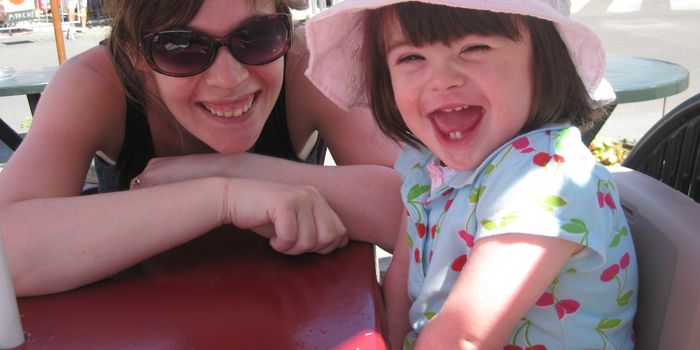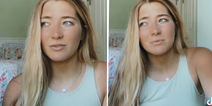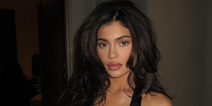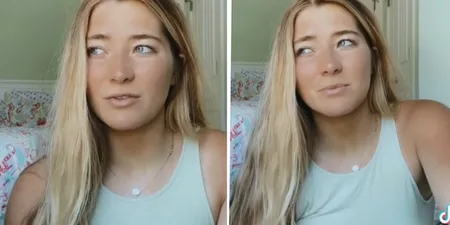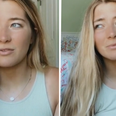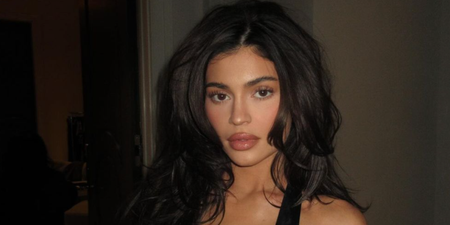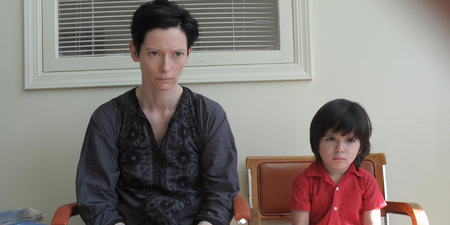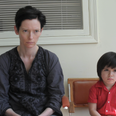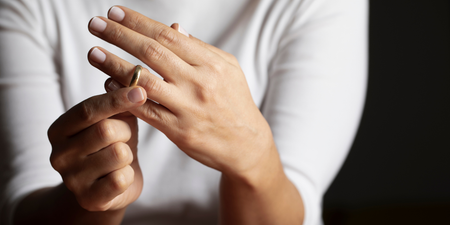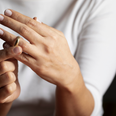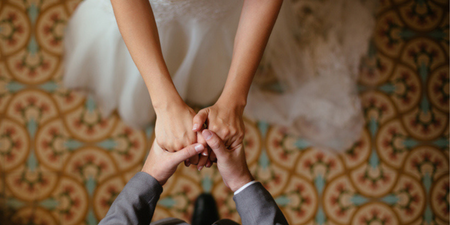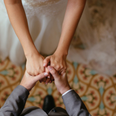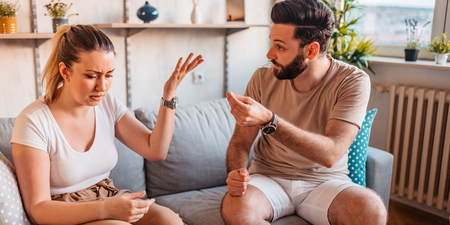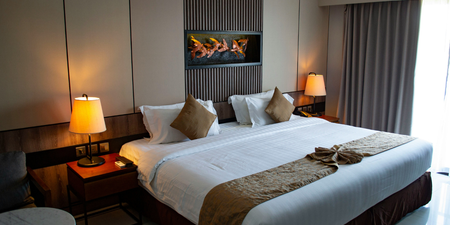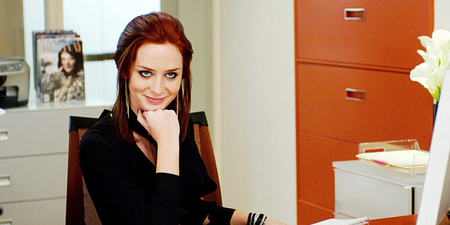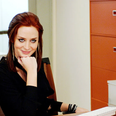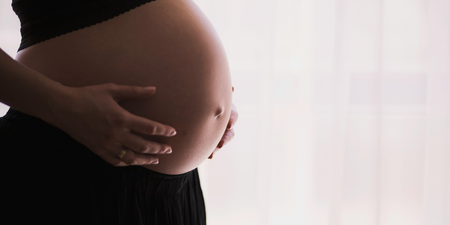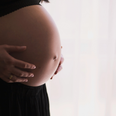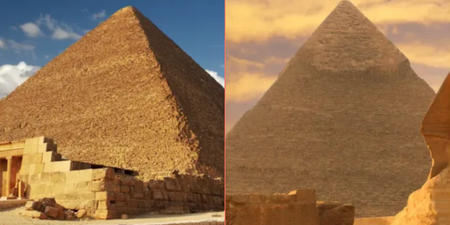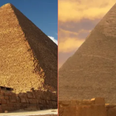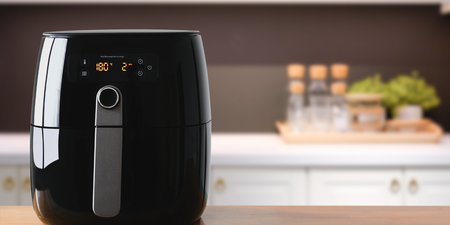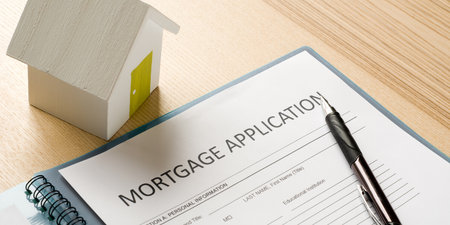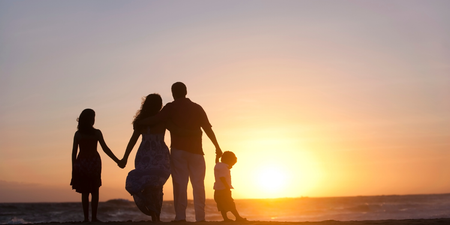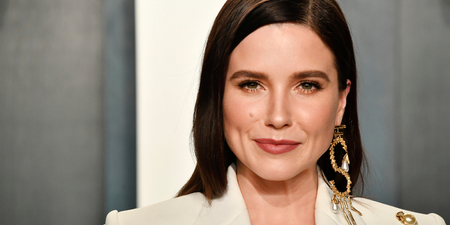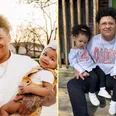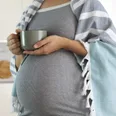To mark World Down Syndrome Day, mother and blogger Aedín Collins of Mini and Mum has written this guest piece for Her.ie.
_______________________________
Mother’s Day is approaching and for a lot of you, it will be your first time as the celebrated rather than the celebrating. But how would you feel if your new baby, the baby you had waited nine long months to meet, arrived into this world with a little something extra?
An extra chromosome that meant your baby had Down syndrome. Would you be shocked, angry, upset? Maybe you would think it was your fault?
Perhaps you would feel that you weren’t strong enough to raise a child with an intellectual disability.
As a mum of a little girl with Down syndrome, I had all these thoughts and more running through my head when we were given Róisín’s diagnosis and I’m here to dispel some of the myths surrounding the condition – to let you know that Down Syndrome is not the doom and gloom diagnosis it once was, from one mum to another.
1 “This is all my fault. I must have done something bad during pregnancy for this to happen.”
Let’s be crystal clear about this – the occurrence of Down syndrome is no one’s fault. In 95 per cent of cases it is due to a random genetic mutation, which causes an occurrence of an extra 21st chromosome in every cell in the body. This is called Trisomy 21. Chromosomes are the building blocks of the body. Normally, 23 are inherited from each parent, making 46 in total. They determine eye colour, whether you are going to be good at sports and a whole host of other things that help to make you… you. It is this extra chromosome that causes a number of mental and physical delays in babies with Down syndrome. In Ireland it occurs in roughly one out of every 550 births.
In about 3 to 4 per cent of cases the extra chromosome will attach itself to another chromosome, giving rise to Translocation Down syndrome. This can be inherited.
In very rare circumstances, a condition called Mosaic Down syndrome occurs. This is a combination of cells carrying the extra chromosome and normal cells.
2 “Is my baby a “downy” baby?”
No. Your baby has Down syndrome. It does not have him or her. Remember there are 46 other chromosomes at play. Each baby born into this world is an individual with defining features and a unique personality.
3 “Is my child retarded?”
No. Your child has an intellectual disability, meaning they will have a lower than average IQ. The word retard is part of hate language and should never be used. You may be thinking that it’s just a word; “Sticks and stones may break my bones but words will never hurt me”, and all that.
Tell that to the people who have been bullied and driven to suicide by unkind words. There, the words have done far worse than break bones; they have broken souls and stolen lives.
People with intellectual disabilities have been institutionalised, been torn away from their families, had their human rights trampled upon and experience prejudice very single day. The R word is compliant with this shameful practice. Its usage belongs firmly in the past as a glaring example of how not to be a decent human being.
4 “Well at least my child will always be happy.”
Em, wrong again! As the mother of a boisterous toddler, let me tell you this is definitely not true. Just like any other young child, the whole spectrum of emotions is often on show and temper tantrums and tears are a part of our daily lives. Believe me, Róisín can give as good as the next kid when it comes to making her displeasure with something known! To suggest a child is always happy is to suggest that he or she is not aware of what is going on around them and children with Down syndrome are well aware!
5 “But I’m young! This is something that only happens to older mums!”
Although strictly speaking the odds of having a baby with Down syndrome increase the older the mother is, in reality more babies with Down syndrome are born to women in their 20s, as statistically speaking more women give birth at this age than at any other time in their lives.
6 “My baby won’t look like me – he’ ll look like others with Down syndrome.”
The first time I brought my daughter to a meeting of parents and babies under 12 months who had Down syndrome, I’m embarrassed to say that I thought all the babies would look exactly alike. They didn’t, of course. Yes, they shared similar features – almond shaped eyes, pointed chins and round faces but first and foremost, they looked like their mums, dads and older siblings.
7 “People with Down syndrome cannot be creative.”
There are so many high profile artists and performers with Down syndrome. Actress and dancer Sarah Gordy has appeared in award winning shows such as Call the Midwife and Upstairs, Downstairs. Lauren Potter has a recurring role in the popular TV show Glee. Last year, William and Kate accepted a painting for their newborn son, George, by Tazia Fawler, an artist with Down syndrome.
8 “People with Down syndrome are incapable of forming meaningful relationships.”
Would it surprise you to learn that people with Down syndrome are getting married? They are looking for love and companionship just like the rest of us. Channel 4’s Undateables is doing wonders to promote healthy relationships between consenting adults, and closer to home the critically acclaimed play Sanctuary masterfully dealt with one of the last remaining taboos in western society – sexual relations between adults with learning disabilities.
9 “People with Down syndrome cannot lead independent lives.”
Yes they can and they are now leading fuller, happier, more fulfilling lives than at any other time in history. No longer are they being bundled off to institutions, to live out their days hidden away from society. They are living by themselves, going to work and making a meaningful contribution to their communities – just like everyone else.
10 “People with Down syndrome can accomplish all of the above without any help.”
No. They can do many varied and amazing things and are often capable of so much more than we give them credit for. They overcome so much, combating odds that society has stacked against them while facing challenges head on. It may take them a long time to master skills the rest of take for granted but they will get there! What they need is our support and encouragement.
Today is World Down Syndrome Day and as a proud mother of a wonderful, curious, energetic and loveable toddler who also just happens to have Down syndrome, I’m asking you to be aware, to educate yourself about the condition and realise that Down syndrome is not the life sentence it once was.
And if you’re still not convinced that Down syndrome is ok, take a look at this fantastic video from the people themselves.
To support World Down Syndrome Day, please text ‘centre’ to 50300 to donate €2 for the creation of a Down syndrome centre in Dublin, which will provide vital resources for those living with the condition.
You can find lots more from Aedín and Mini, along with Mini’s dad and baby sister on Aedín’s blog, here.
